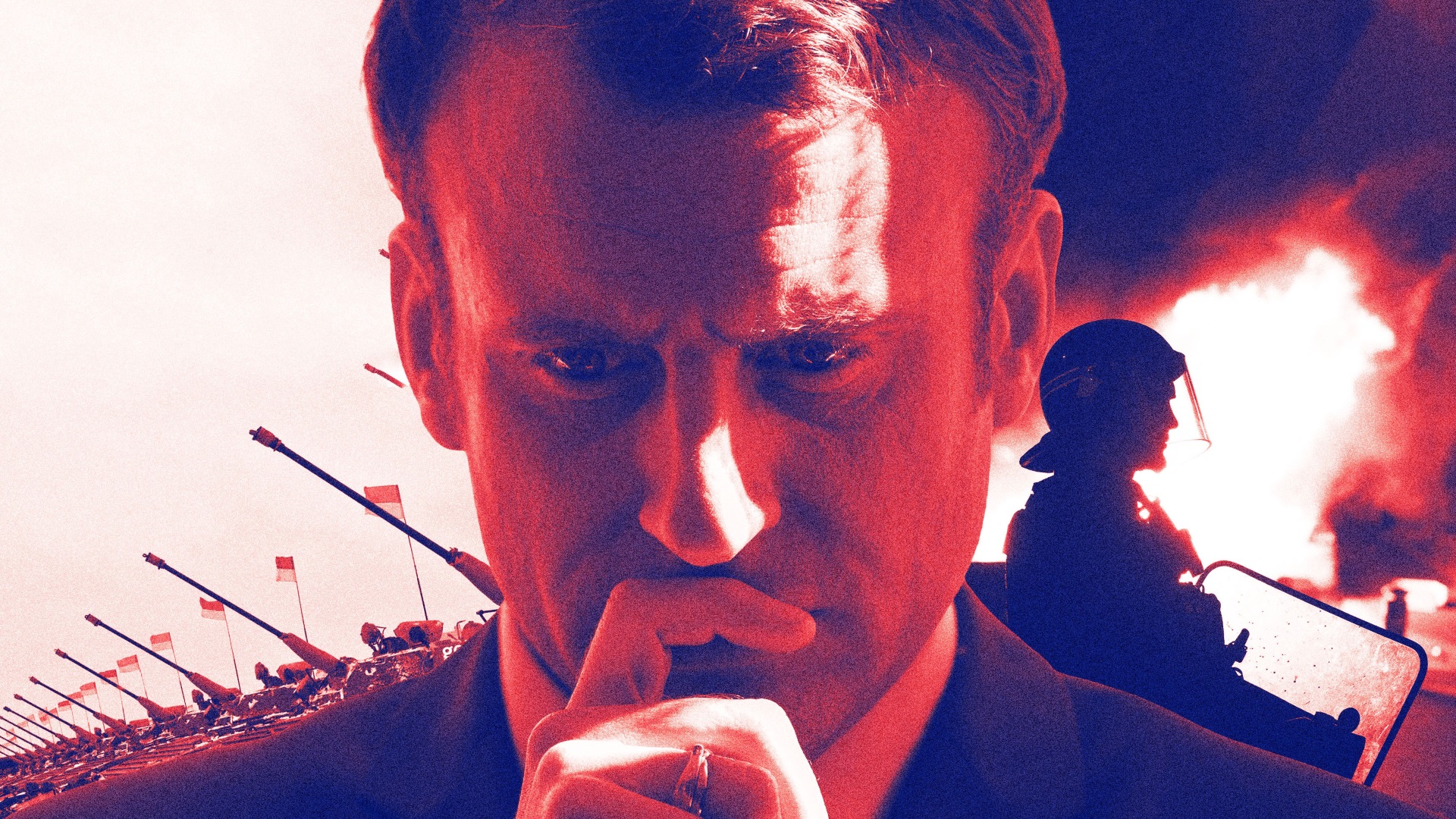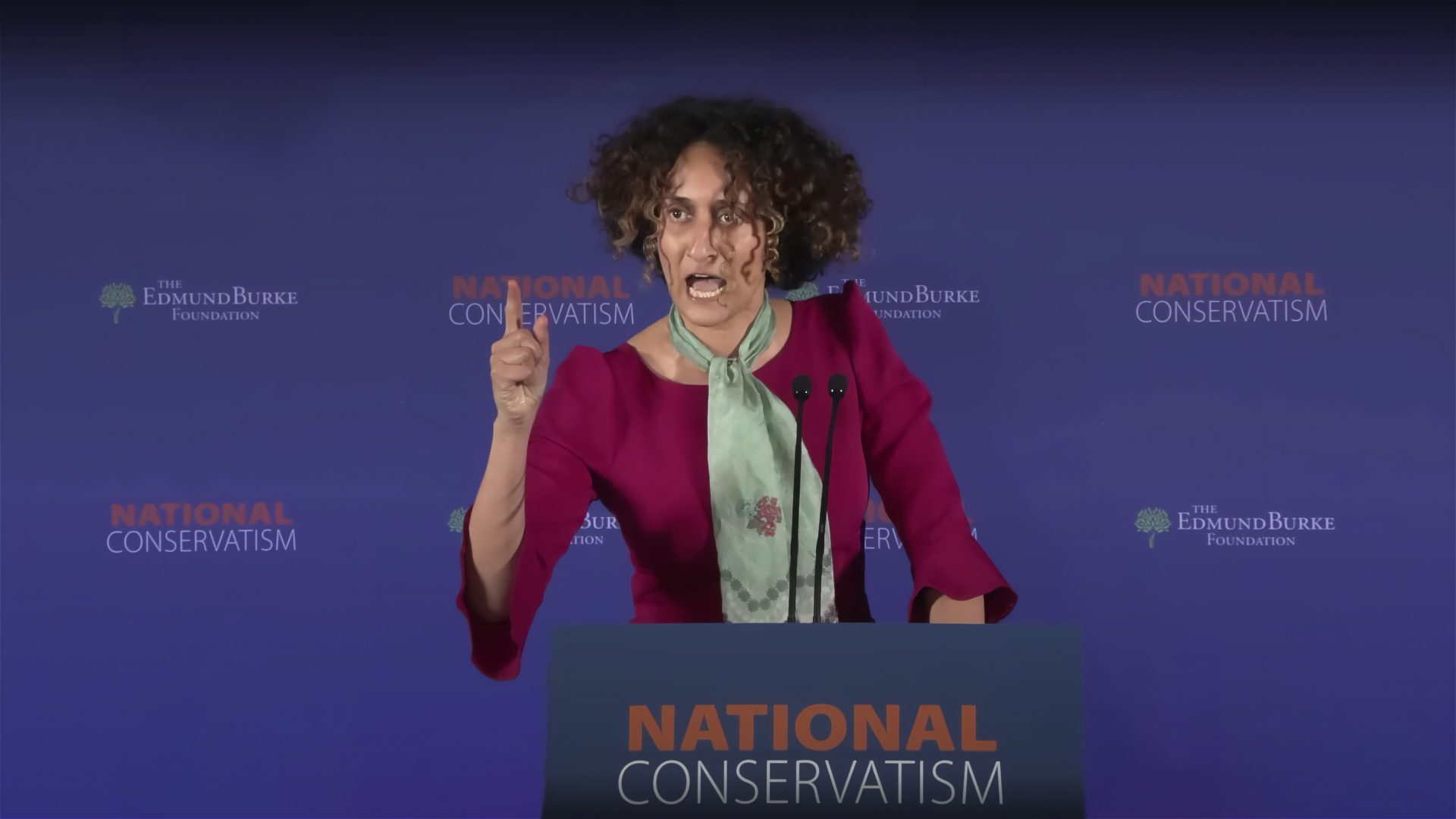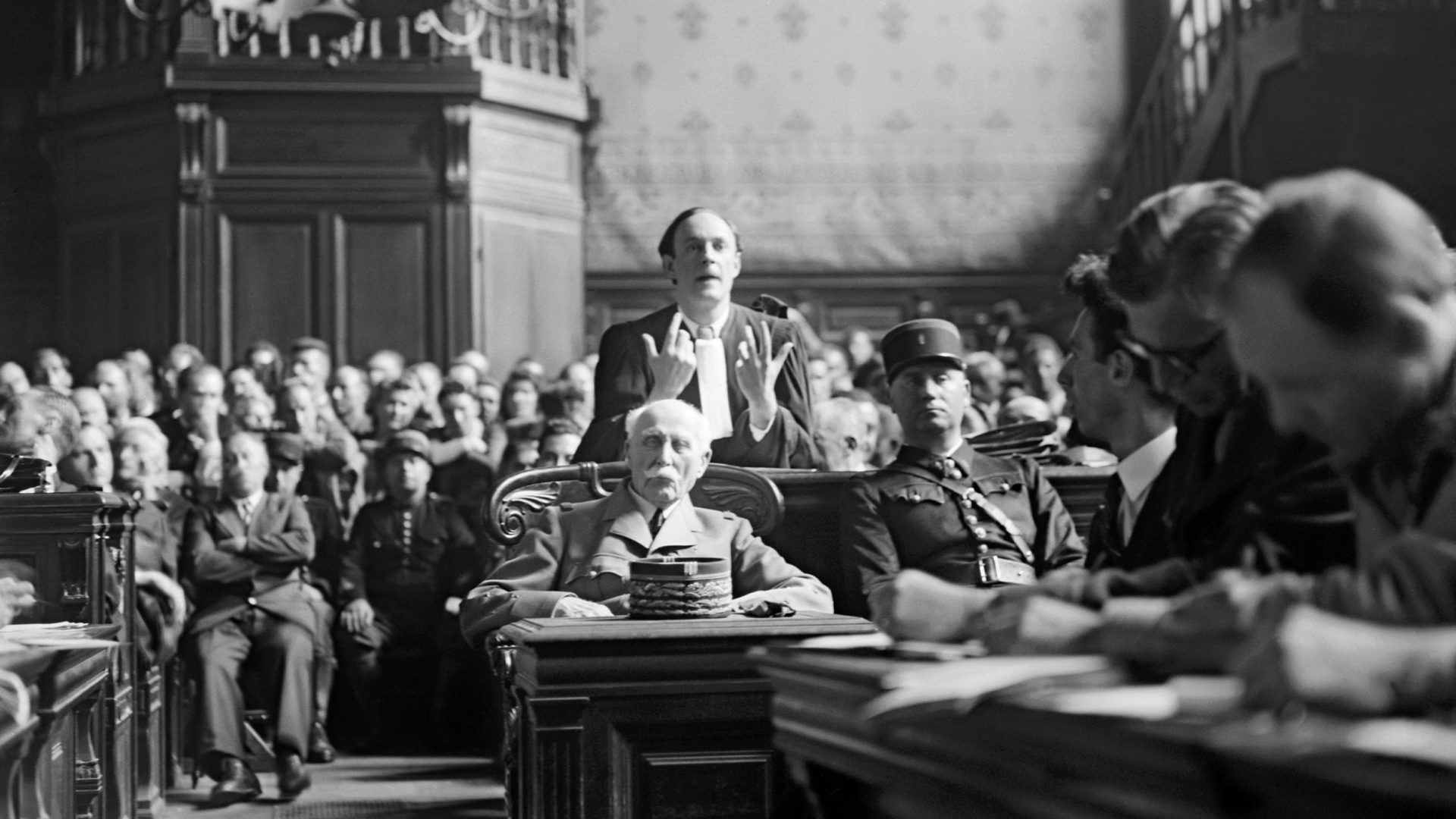In some countries, 24-hour television news is ailing. CNN has become confused, dispensing with its liberal fury and playing host to a Donald Trump “town hall” question and answer session. At the BBC, the controllers decided in their infinite wisdom to merge its international and domestic news operations, a change widely regarded as a failure.
But in France, up-to-the-minute news coverage is suddenly thriving. La Chaîne Info (LCI), the rolling news service of the main TV network, TF1, is enjoying record ratings.
The recent riots have caused a huge spike in demand for rolling news. But even before that, Russia’s invasion of Ukraine had created a huge new audience. Valérie Nataf, one of LCI’s chief commentators, admits she has been taken aback by the surge in audience figures: “Everything the French public was supposed not to care about has become a topic for heated debates: Europe, defence and diplomacy,” she says. “Viewers are captivated by the situation reports and by retired army officials and military pundits explaining over and over again what’s at stake.”
The numbers went haywire over the weekend of Yevgeny Prighozin’s short-lived mini-coup-that-wasn’t. Putin’s brutality in Ukraine has also struck a nerve in France, a surprising one given that voters and politicians have spent much of the past two decades scoffing at Anglo-Saxon military misadventures and at the breathless presentation of “news from the frontline”. Long, languid and (sometimes) learned discussion programmes have been far more the norm in French broadcasting. But underlying this new hunger for news is an urgent sense of concern about France’s role in the world.
In some respects, however, nothing has changed. Bombast goes with the presidential territory, and Emmanuel Macron has always wanted to be the centre of attention. Worn down by his domestic agenda, Macron has jumped at every opportunity to shine on the world stage.
And yet problems back home continue to thwart those hopes. In March, he was supposed to host King Charles on the monarch’s first royal visit abroad, only for serious protests over his pension reforms to render it unsafe. Then in recent weeks came the riots following the killing of 17-year-old Nahel M in the Paris suburbs, and the postponement of an eagerly anticipated state visit to Germany.
The violence that has raged across France provides further evidence not just of a fractured country, but also of a president unwilling and unable to act as a unifying force. Recent events have also seen another upsurge in the popularity of Marine Le Pen and her far-right National Rally party. While the president has been trying to toe the line between listening to the anger of the banlieues and supporting the police and security forces, opinion polls suggest that a strong majority in France back tougher law and order measures.
Ever since 2018 and the start of the gilets jaunes protests, indeed long before that, France has been on the brink of serious civil disturbance. For Macron, the great projectionist, this is not a vision of his country he wants to display to the world.
But the more he treads the world stage, the more Macron is attacked at home for self-aggrandisement and for dereliction of duty. One of the charges laid at him by commentators and politicians during the rioting is that he sees the domestic agenda as beneath him. Macron’s supporters may counter that the paramilitary belligerence of the French police long pre-dates him. But the more he travels, the more aloof he appears, and the more the accusation will stick.
Before the Russian invasion of Ukraine, he was pushing an idea he called “strategic autonomy”, much to the consternation not just of the United States but of the Germans and other Europeans. This was based on a belief that the US pivot to Asia was permanent, and that Europe should start looking after itself. But it went further than that: Macron was seeking to manoeuvre the European Union into the role of the third pillar, between the US and China. His casual and now-infamous observation that Nato was “brain dead” did not help.
As the spectre of war in Ukraine loomed in late 2021 and early 2022, Macron saw an opportunity to take his one-man global diplomacy to a new level, clocking up hours of phone calls with Vladimir Putin, calling repeatedly for Russia to be understood and not humiliated. This compounded suspicions that he was ambiguous about the invasion of Ukraine.
Unlike the German chancellor, Olaf Scholz, Macron didn’t have a single moment of conversion. There was no French Zeitenwende, more a gradual shift. At the start of the war, and as France’s presidential election was gathering speed, the Élysée confined its pledges to Ukraine to “defensive equipment and fuel support”. Behind the scenes, however, it was providing MILAN anti-tank missiles and other munitions.
Once his second term was secured, after seeing off a challenge from the far-right’s Marine Le Pen, Macron stepped up support, providing Caesar howitzers and an unspecified number of artillery shells. In terms of official pledges, France was not even in the top 10 countries. Officials countered this by saying that the quality of made-in-France weaponry outweighed the quantity – a very French argument – and that the value of arms sent was greater than the amount made public.
Even though the Germans were providing more, they were being shunned by the Ukrainians, while Macron was receiving effusive bear hugs from Volodymyr Zelensky. Macron was beginning to enjoy his new-found role as a hawk.
All the while, he missed no opportunity to project himself as the west’s most dynamic leader. The competition for top dog was hardly strong. Britain’s succession of prime ministers denuded it of credibility, even if its military and political backing for Ukraine was impressive. Scholz continued to struggle, his coalition riven with in-fighting, his diplomats resentful of the absence of plaudits for its quiet support for Kyiv. The real star may have been Joe Biden – American support for Ukraine has eclipsed all others – but the Trump-coloured cloud that hangs over the world is ominously dark.
This has left a French-shaped diplomatic hole to fill. Some of Macron’s initiatives have worked, such as a conference in Paris in June where he convened 40 other world leaders to hammer out more financial support for combating climate change.
Other efforts have backfired, sometimes ridiculously so, such as when he tried to get himself invited to the forthcoming summit in Pretoria of the so-called Brics economies – Brazil, Russian, India, China and South Africa.
The most spectacular mistake came in April, when he was brilliantly played by Xi Jinping, who gave him a lavish welcome in Beijing while sidelining Ursula von der Leyen, the more outspoken EU Commission president. Smitten by the flattery, Macron told journalists on his way home that Europe must resist becoming America’s “vassal”. His aides spent days, weeks, trying to limit the damage caused.
At the heart of the EU, relations between the big players have been scratchy for some time. Poland and Germany are at loggerheads, with Poland’s ruling Law and Justice party constantly needling. The Germans and the French have improved ties – but even so, they are still not what they were. France has long been treated with suspicion, not just by the Poles but across much of central and eastern Europe. Cue another opportunity for Macron, and a speech at a recent conference in Bratislava, Slovakia, that has been hailed as one of his most important.
Macron started his remarks by alluding to a comment made by Jacques Chirac. Infuriated by the support of post-communist states for George W Bush and the invasion of Iraq, Chirac told them to know their place. “Some said you missed opportunities to stay silent,” Macron declared, apologia in full swing. “I say we sometimes missed opportunities to listen to you. That time is over.” He added, for good measure: “I don’t think there is a western and an eastern Europe, an old Europe and a new one. There is only one Europe, with a will to build unity.”
Macron sought to allay any lingering concerns about his support for Ukraine, which he said was “for the long term”. He called for “concrete and credible security guarantees”, stressing the importance of avoiding a ceasefire that would turn the territory into a frozen conflict. As for Nato and the state of its brain, Putin had “jolted it awake with the worst of electric shocks”.
Macron ticked all the boxes of eastern European sentiment – saluting the strength of Nato, acknowledging the experience of many countries under Soviet rule, and supporting a route for Ukraine towards Nato membership.
“Europe will not be kidnapped a second time,” he declared, an apparent reference to an essay written by Czech writer Milan Kundera warning about Russia’s aims in Europe. “We didn’t listen enough to you, and your calls for your history and painful memories to be acknowledged.” By this point he had his audience of largely eastern European governments and policymakers in raptures.
France the flexible friend or the fighter of the good fight? On China, it seems to be the former, on Russia it has turned itself into the latter.
Foreign and security policy are both back centre stage in France. The National Assembly is on track to approve its biggest military budget in over half a century, which would bring spending over the next seven years to €413bn (£352bn), an increase of €100bn over the previous period. It is still playing catch up, still below the 2% Nato threshold agreed a decade ago, as is Germany, as are others. Poland, at 4%, is by far the biggest spender in Europe and is set to have its largest conventional army.
Macron’s hyper-activity on the world stage could be dismissed as self-aggrandising, which in part it is. It is in the nature of the role and of the man. But there is another explanation. At a time of extraordinary uncertainty, with Russia on the verge of chaos, with the war in Ukraine ever more menacing, with China an ever-growing threat, Europe struggles for leadership. Even as it deals with terrible violence at home, France is stepping, or perhaps stumbling, into the breach. This new role at least has viewers transfixed.




